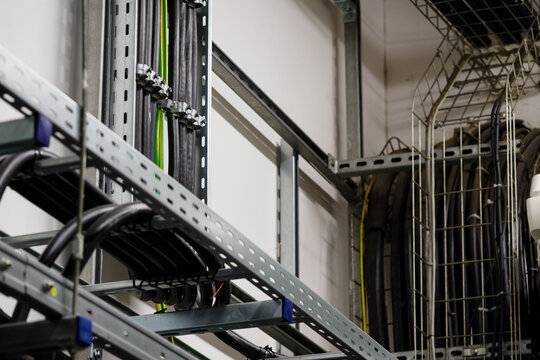The use of ladders dates back to ancient times. It is one kind of material that is now being employed in all aspects. In the days gone by, the only materials available for use in the production of ladders were wood and bamboo.
Aluminum and fiberglass-reinforced plastic (FRP) came about as a result of time and technical progress. The discovery of these materials has made it far simpler to construct ladders than it ever was before.
Each of these materials, but notably the FRP, offers a number of distinct benefits. Because they have so many characteristics that are suited for industrial usage, they are an excellent choice.
When it comes to maintaining a door or other building in commercial or industrial settings, the need for fiberglass ladders becomes particularly apparent. A FRP ladder-type cable tray is an ideal material for use in any of the applications that have a height of around eight feet.
People tend to think that this kind of ladder is superior to others, such as aluminum or steel ladders, for a variety of reasons. Some of these reasons include: This sort of ladder is even stronger than the other two types, with the exception of having a lower or non-existent electric conductivity.
Because fiberglass does not burn, these ladders may be used safely even in fire brigade squads. This is because fiberglass is fire-resistant. Consequently, when compared to other ladders, this one seems to have a greater number of advantages in practically every conceivable way.
Why are FRP ladder-type cable trays important?
People are used to unexpectedly meeting with injuries caused by abrupt falls from ladders or stairs at many business establishments, particularly industrial ones. These incidents are especially common in industrial settings. The majority of the time, this is because the edges of the stairs are very slick.
Because of this, the maximum building rules require a certain form of stair nosing to be put on stairs in order to provide anti-slip features. The most significant benefit of FRP that this nosing provides is an increase in safety for everyone who walks by it.
Cable trays are basically the components of support systems which are used for communication, power wires and cables. A cable tray system safeguards and supports both signal and power cables which facilitate expanding, upgrading, relocating, and reconfiguring networks.
Most of the cable tray systems allow heat dissipation in an efficient manner. You can also get easy access for repairs and replacements. Although the cable tray is suspended from walls or from ceilings, some cable tray systems can be apt for underfloor use.
FRP ladder type cable trays can be obtained from the eminent cable manufacturers who can give you high-quality cable trays.
Also Read: Exploring different types of Multicore flexible cables
You can get perforated type cable trays, ladder type cable trays, wire mesh, solid bottom type cable trays and channel type cable trays. The materials used in the cable trays are There are two types of materials that are used in the cable trays: metallic and non-metallic.
Some precautions need to be taken to make sure that the coaxial cable is maintained within the standards. Clutter and combustible dust may collect if the trays are not kept clean and checked routinely.
Advantages Of Cable Trays
- FRP ladder-type cable trays can be maintained with ease. Cables are visible on an instant basis for changing the cables and performing maintenance checks, which are easy because the cables can exit or enter the tray at any point of the system.
- One of the prominent benefits of the cable trays is that you get the product at a relatively standard price. As the cost is lower, a large number of people can use FRP cable trays.
- For safety, it is important to do housekeeping on a regular basis. Therefore, cable trays are installed in places where your hands will not easily reach.



